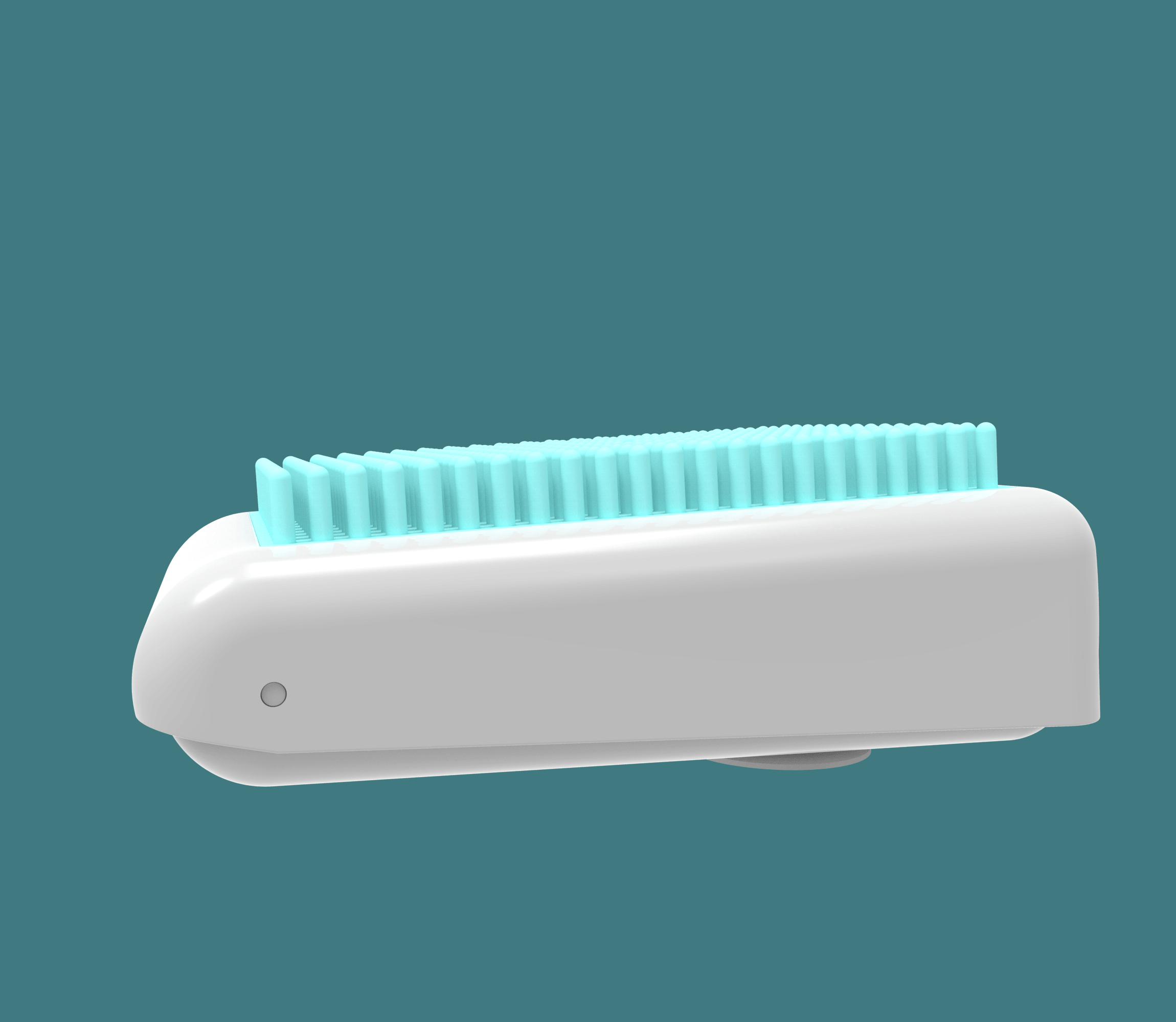OVERVIEW
Timeline: April - May 2018 (5 weeks)
Focus: Design for Manufacturability | Engineering | Product design | Assistive technology
Collaborators: Hyung Jin Yoo | Jianan Li
The final project of my Design for Manufacturability course titled amalgamation challenged us to combine two existing products in order to create something new. The primary goal was to apply DFM methods learned throughout the course in our work, however, our team carefully selected two products that would allow us to create something both novel and useful. People living with hand injuries or with a single hand struggle in washing their remaining hand with soap due to the design of the soap pump bottle and the necessity to scrub for cleaning efficacy. Inspired by the challenge of individuals living with single-hand dexterity, our team selected a soap dispenser and a brush as the products for an amalgamation. Through this project we explored user needs, product architecture, CAD design, QFD, product specification, bill of materials, costing, design for process (injection molding), and DFA.
The underlying objective was to design the product to be as useful for the user and as cost effective as possible from a manufacturing perspective. We designed the product to have the least number of required parts, making it more economical. Additionally, we spent a lot of time considering manufacturing processes and DFA, allowing the manufacturing methods and the assembly process to inform many of our design decisions. Through this process, I learned how important it is as a product design engineer to consider manufacturing from on onset when designing a product and the tremendous potential of this mindset to save time and money later on.
PROCESS
User needs
We began by interviewing three target users to learn about their needs first-hand. Users explained and demonstrated their challenges as well as many clever workarounds that they implement daily in order to adequately clean their hands with soap.
We then translated their statements into nine customer needs, which were weighted by importance. We took these into account throughout the remainder of the design process.
We determined that a brush and a pump soap dispenser are two products that could solve the problem if merged in an appropriate form factor.
CONCEPT
How it works
Design for assembly
Part design for injection molding
Each member of the team worked on designing one component of the product to be manufacturable by a certain process. I designed the bristle pad to be injection molded. I considered relevant characteristics in this design including the material thickness, drafting, and tooling.












